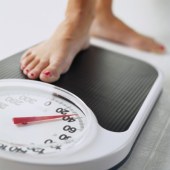Why are healthy Testosterone levels and Testosterone replacement so important?
Testosterone is an androgen hormones produced by the testes. It is the principle male hormone and is responsible for development of male sex characteristics. Testosterone is also the hormone of desire. Men produce Testosterone primarily from the testes and also from the adrenal glands, while women produce smaller amounts of Testosterone in their ovaries and adrenal glands.
Testosterone is important to male wellness. Testosterone has a well-documented role in cardiovascular health and bone density. Research demonstrates that low Testosterone levels are associated with increased risk of a heart attack and high blood pressure. Optimal Testosterone levels positively affect muscle tone, blood pressure, cholesterol levels, the immune system, weight, mood, bone health, skin, libido, sperm production, sleep, as well as heart, liver and brain health.
What are symptoms of low Testerone that could indicate a need for Bioidentical Testosterone Replacement Therapy?
- low libido
- lack of initiative, assertiveness and drive
- fatigue
- low self-esteem and self -confidence
- depressed, irritable moods
- indecisiveness
- decreased mental sharpness (foggy thinking)
- decreased physical stamina
- poor exercise tolerance
- loss of muscle mass, tone and decreased strength
- increased body fat
- decline in sexual ability
- Erectile Dysfunction (ED)
- sleep apnea
- breast enlargement
What are common causes of low Testosterone in men?
Hypogonadism
Hypogonadism, defined as low hormone production by the reproductive gland (testes in men), occurs when the testicles do not produce sufficient levels of Testosterone.
Age-Related Decline
As men age, they move from a state of optimal Testosterone status to one of relative deficiency as their Testosterone levels naturally decline. This stage of their life is referred to as Andropause, Low Testosterone Syndrome (Low T) or Male Menopause. This downward slide usually begins in a man’s thirties and continues inexorably until the day he dies, although it is beginning to occur more commonly in younger men.
As with any biological change that occurs gradually rather than abruptly, the age-related decline in Testosterone often goes unnoticed until a critical point is reached. Suddenly, out of the blue, a man in his forties or fifties may notice (or his spouse or family members may notice) he is feeling or acting depressed, irritable, or uninterested in the things that used to give him pleasure. He may notice that he has more aches and pains and fatigues more easily. He may develop a “spare tire” around his abdomen and find that his muscles have lost their strength or tone. The man may begin exercising, but find that even when he works out that he shows little improvement in muscle strength and stamina. He may go on a diet but have trouble losing weight. The lack of progress in his fitness regimen often leaves him feeling even more discouraged. He may lose interest in sex, have difficulty making decisions, or experience any number of other problems related to the decline in levels of Testosterone.
Xenoestrogens
Exposure to xenohormones is a risk factor for low Testosterone. Xenoestrogens mimic the effects of estrogen in our bodies and can interfere with normal hormone function. This is a disaster for men, for not only do xenoestrogens disrupt the production of Testosterone, they also antagonize the effects of existing Testosterone in the body. For instance, xenoestrogens are linked to the dramatic decline in the average sperm count in Western societies since the 1950’s as well as to the rise in testicular cancer over the same time period. Xenoestrogens are found in petrochemical products such as plastics (plastic wrappings and plastic drinking bottles), herbicides, pesticides, soaps, detergents, pollution, clothing, industrial by-products, countless manufactured goods and meats from animals raised on hormones.
Other Causes
Some other causes of low Testosterone levels include:
- injury or infection to the testicles
- chemotherapy or radiation treatment for cancer
- genetic abnormalities such as Klinefelter’s Syndrome (extra x chromosome)
- hemochromatosis (too much iron in the body)
- dysfunction of the pituitary gland
- medications
- chronic illness
- cirrhosis of the liver
- chronic renal (kidney) failure
- AIDS
- inflammatory diseases such as sarcoidosis (a condition that causes inflammation of the lungs and other organs)
- stress
- alcoholism
- marijuana use
- congenital conditions
How do you test for low Testosterone and decided whether or not a man would benefit from Testosterone replacement?
At Canyon Health we measure Testosterone levels by measuring both the Total Testosterone level and the Free Testosterone level on every one of our male clients. These two values are used in combination with your symptoms and physical examination findings to determine your need for Testosterone Replacement therapy. Again, blood tests are not the only factor to be considered in establishing a need for Testosterone replacement. Clinical symptoms are equally, if not more important, both for identifying Testosterone deficiency and for evaluating the effects of Testosterone replacement. After all, our goal is to help you achieve optimal health and wellness, not specific levels on a lab test. These lab tests are evaluated against men in your own age range, therefore your Testosterone levels may test normal for your age range, but they may not be optimal for your health. When all of the pieces are considered, both lab tests and clinical symptoms, the necessity for Bioidentical Testosterone Replacement Therapy can be accurately measured.
What are the positive effects of Testosterone Replacement Therapy in adult males?
- Initiates production of sperm by the testicles
- Enhances libido and sexual potency
- Promotes development of muscle mass, strength, and tone
- Decreases body fat
- Promotes increased bone mass
- Stimulates production of red blood cells by the bone marrow; these red blood cells carry oxygen to the body’s cells
- Increases metabolism by enhancing the conversion of the inactive thyroid hormone, T4, to the active thyroid hormone, T3, within the cells
- Promotes male traits such as aggressiveness, spatial and mathematical ability, enhanced well-being, and self-confidence
- Can reverse gynecomastia (enlarged breasts)
Can Testosterone levels affect brain function?
Mood is affected by Testosterone deficiency. Studies show that Testosterone-deficient men have higher levels of depression, anxiety, and irritability, and lower levels of energy and overall well-being than men with healthy Testosterone levels. Bioidentical Testosterone Replacement Therapy usually reverses these changes, alleviating depression and irritability, restoring energy, and enhancing overall well-being. Research demonstrates that mental ability, including memory, improves with Testosterone replacement in men who are Testosterone deficient.
How do you restore Testosterone levels with Bioidentical Testosterone Replacement Therapy?
The solution to restoring optimal Testosterone levels is to supplement with bioidentical Testosterone in physiologic doses. Bioidentical Testosterone Replacement Therapy is available in the form of intramuscular injections, capsules, and creams.
Side note: Conventional doctors often inadvertently prescribe drugs such as antidepressants and sleep aids for the symptoms of low Testosterone rather than Testosterone replacement therapy because they are unaware that the symptoms they are seeing represent Testosterone Deficiency. It makes no sense to prescribe a drug to treat a symptom of an underlying hormone deficiency when the deficiency itself is usually easily remedied by physiologic Testosterone replacement. In addition, mainstream physicians who are aware of Adropause symptoms will, unfortunately, usually prescribe Testosterone by itself and not in combination with the adjunctive therapies that help potentiate the effectiveness of the therapy and minimize/eliminate potential side effect concerns associated with Testosterone supplementation.

